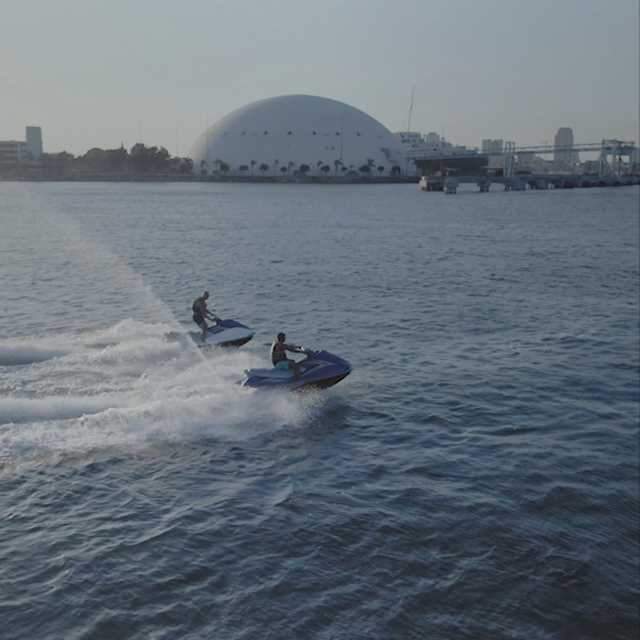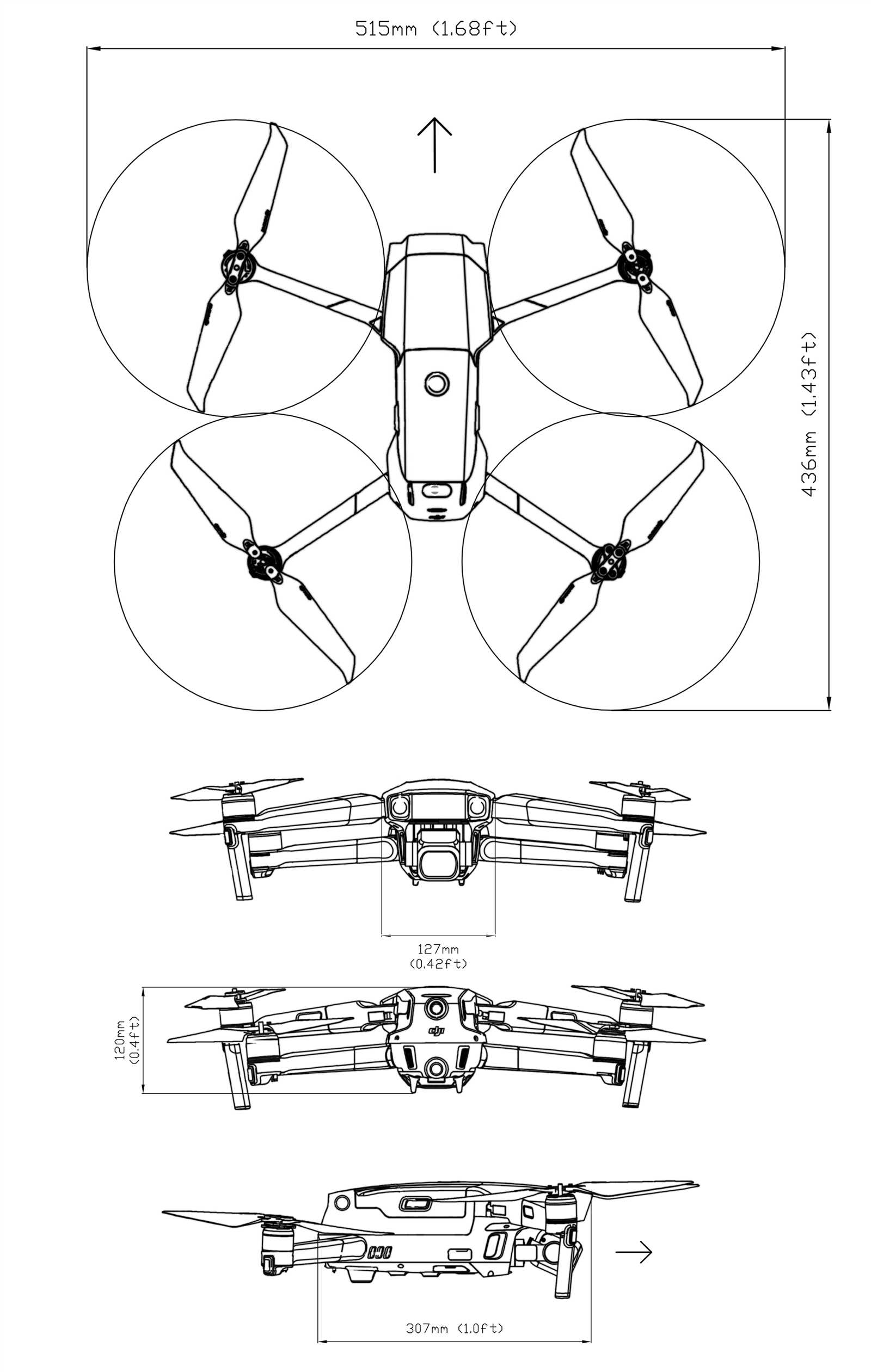
Exploring the world of sophisticated aerial devices opens up a realm of endless possibilities. Whether you are a seasoned pilot or a newcomer eager to master the skies, understanding your high-end drone’s features and functionalities is essential. This guide will provide you with in-depth insights into the operation of top-tier unmanned aerial systems, focusing on enhancing your skills and ensuring safe, efficient usage.
Within these sections, you will uncover detailed instructions for optimizing the performance of your advanced flying machine. From initial setup to advanced flight maneuvers, this resource is designed to help you navigate through every aspect of your aerial tool with confidence. Get ready to elevate your drone experience to new heights as you delve into this comprehensive resource.
By familiarizing yourself with each component and feature, you will be well-equipped to maximize the potential of your aerial device. Embrace the opportunity to refine your techniques and unlock the full capabilities of your state-of-the-art equipment. Dive into this guide to transform your aerial adventures into seamless and exciting experiences.
Getting Started with DJI Mavic 2 Pro
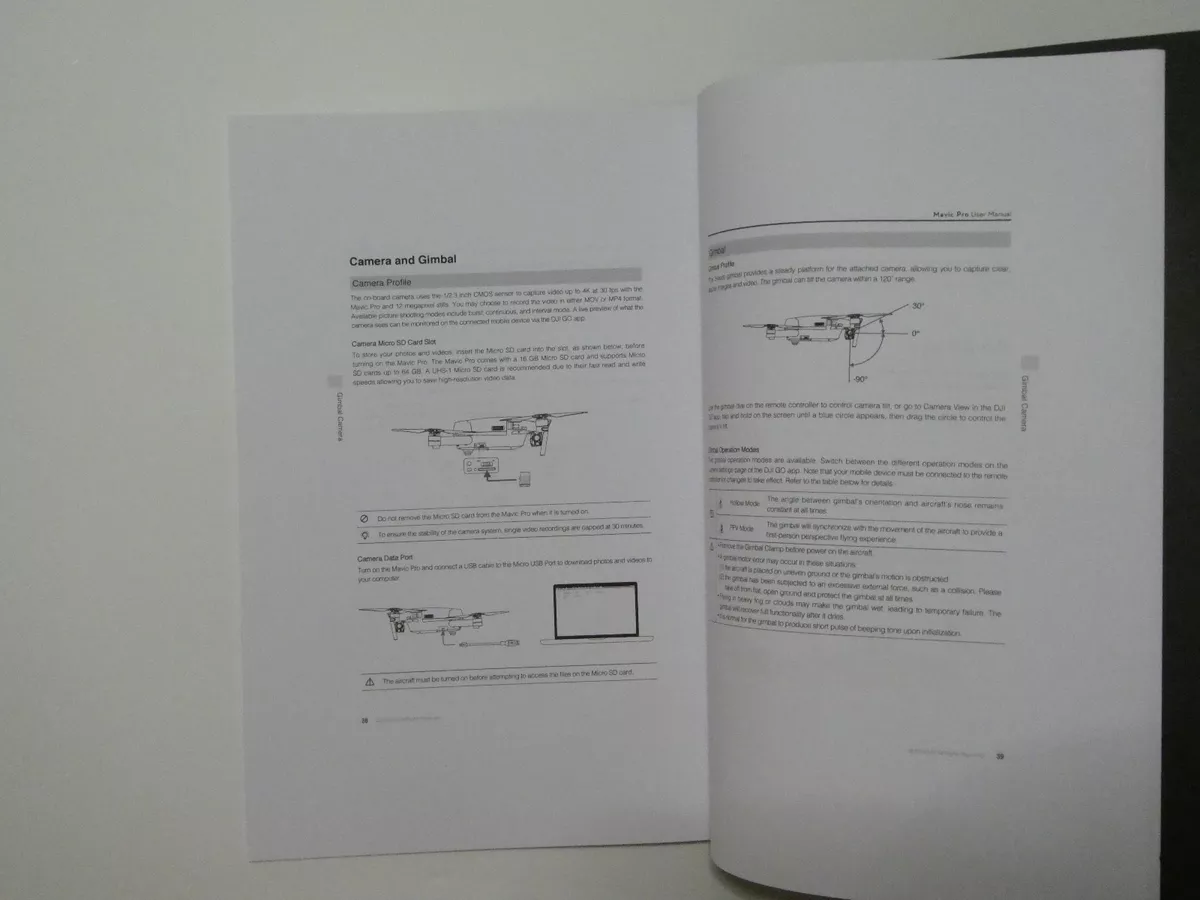
Embarking on your journey with an advanced aerial device involves a series of essential steps to ensure you are well-prepared to maximize its capabilities. This section will guide you through the fundamental process of setting up and using your new equipment efficiently, allowing you to capture stunning visuals and explore the skies with confidence.
Unboxing and Assembly
When you first receive your new flying apparatus, carefully unpack all the components. Here’s a quick rundown of what to expect:
- Flying unit
- Remote controller
- Battery packs
- Propellers
- Charger
- USB cables and other accessories
Make sure to inspect each part for any signs of damage. Assemble the propellers onto the device and ensure all connections are secure before moving forward.
Charging and Setup

Before your first flight, it’s crucial to charge the batteries and the remote controller. Follow these steps:
- Connect the battery to the charger and plug it into a power source.
- Allow the battery to charge fully, which may take a few hours.
- Do the same with the remote controller battery.
Once charged, turn on the equipment and follow the on-screen prompts to complete the initial setup. This usually involves connecting the remote controller to the device and calibrating the compass to ensure accurate navigation.
With these preparations completed, you are now ready to take to the skies and explore the full potential of your new aerial tool. Always remember to review the safety guidelines and local regulations before flying.
Essential Components of the Drone
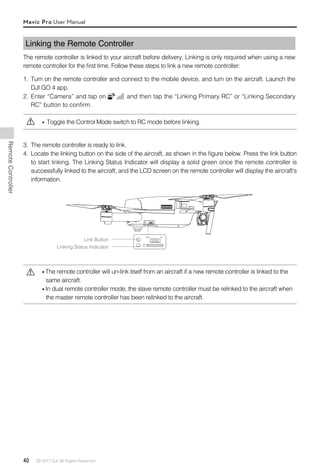
Understanding the fundamental elements of a flying device is crucial for both effective operation and maintenance. Each part plays a specific role, contributing to the overall functionality and performance of the aircraft. This section explores the core components that make up these aerial vehicles, highlighting their importance and how they work together to ensure smooth flight.
Flight Controller
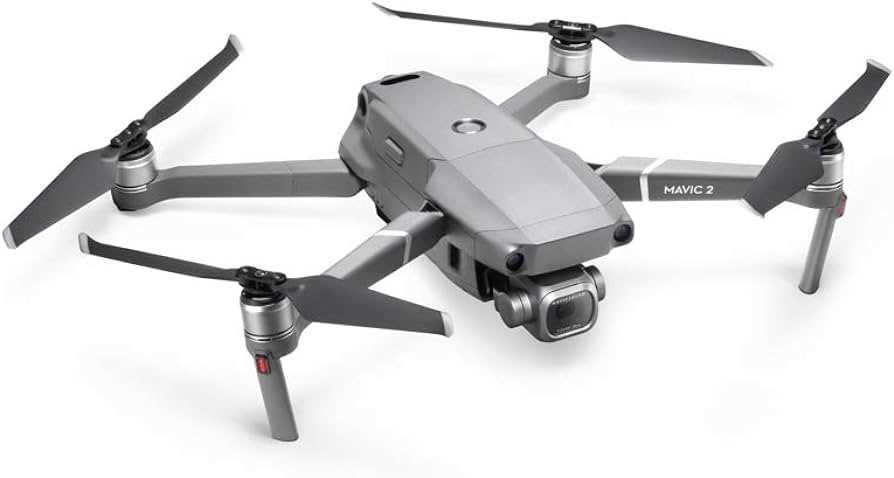
The flight controller is the brain of the drone, responsible for processing data from various sensors and making real-time decisions to stabilize and control the craft. It ensures that the drone maintains the desired altitude, orientation, and position during flight.
- Processes input from sensors
- Controls stability and maneuverability
- Interprets user commands
Propulsion System
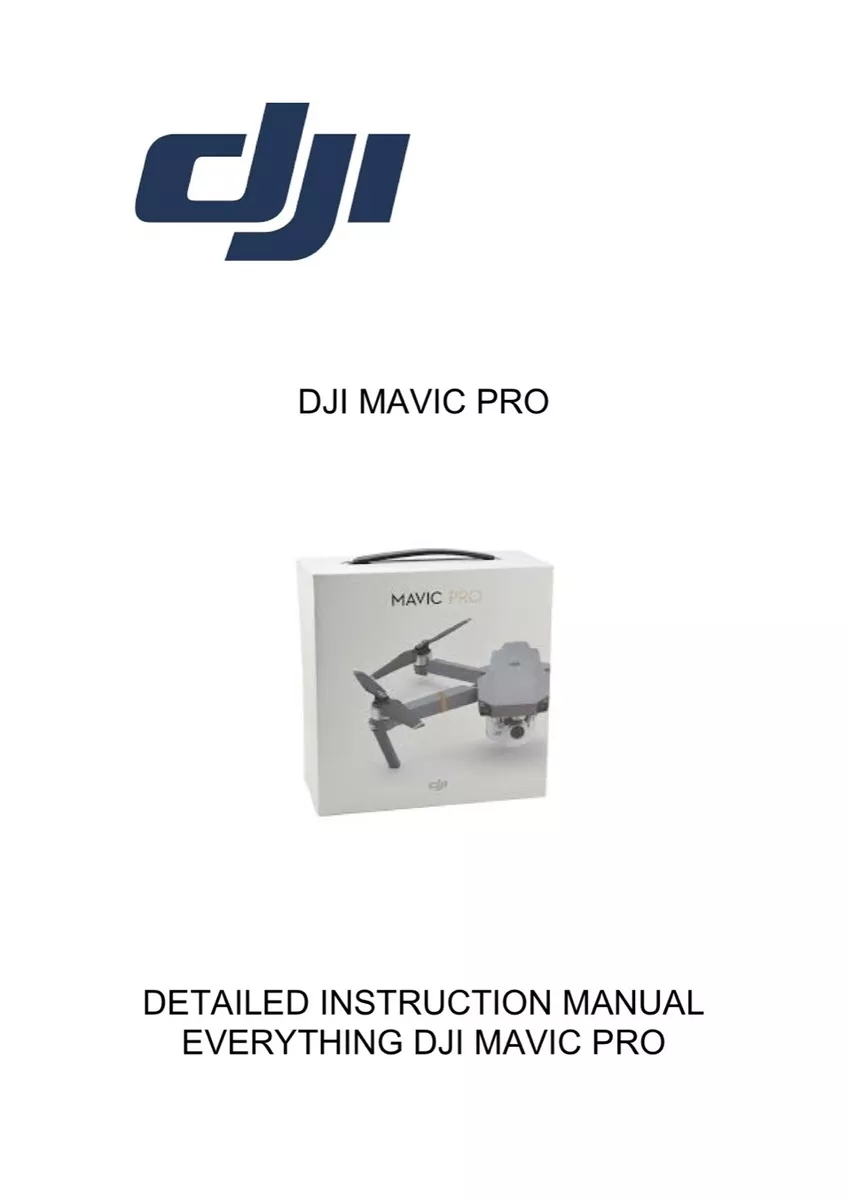
The propulsion system is essential for generating lift and enabling movement. It includes the motors and propellers, which work together to propel the drone through the air and achieve various flight maneuvers.
- Motors drive the propellers
- Propellers create lift and thrust
- Systems are usually brushless for efficiency
Each component is interdependent, and their proper functioning is vital for the reliable operation of the drone. Understanding these parts helps in troubleshooting, upgrading, and optimizing the performance of the device.
Setting Up Your Mavic 2 Pro
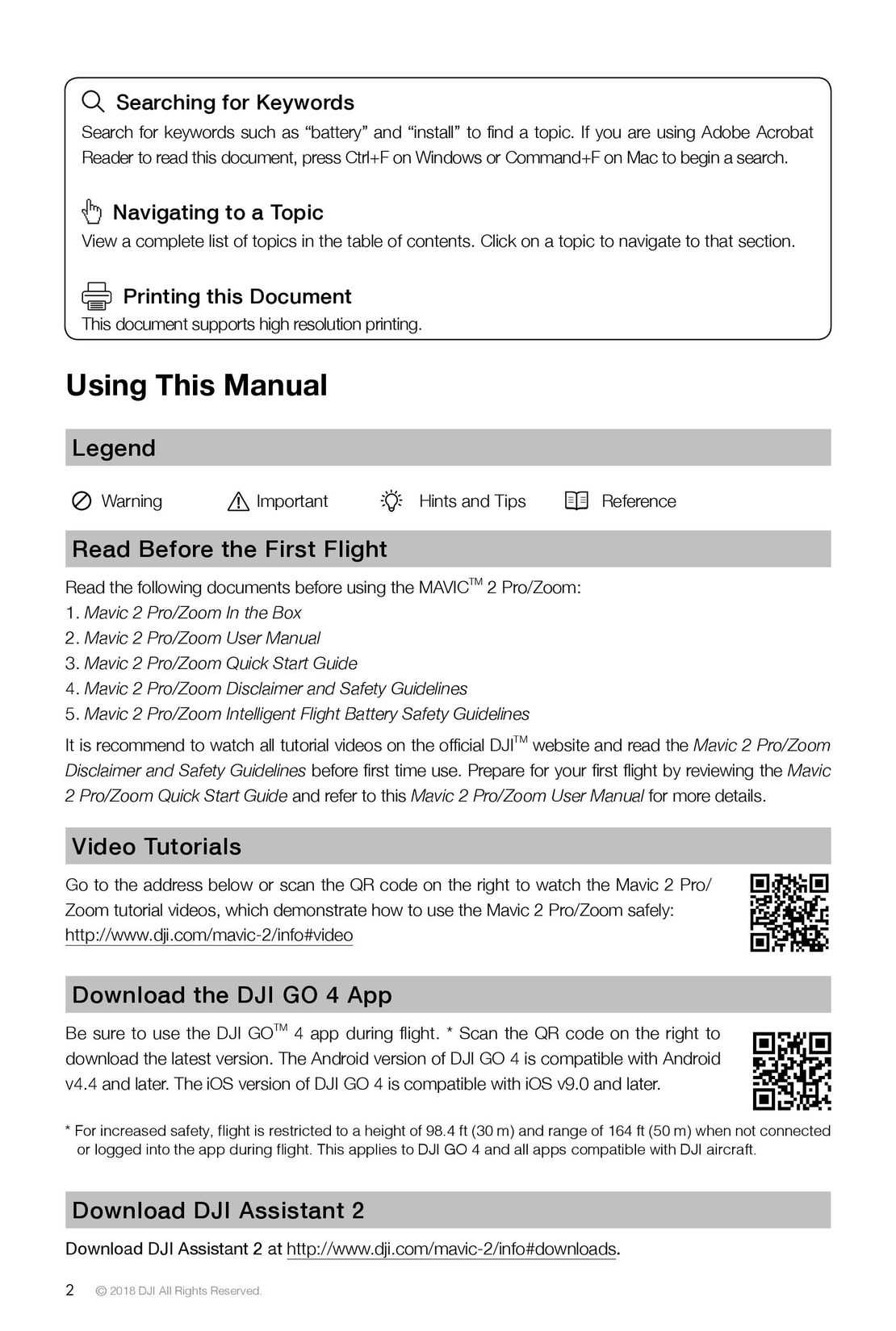
Getting your drone ready for flight involves several key steps to ensure optimal performance and safety. This section will guide you through the initial preparation process, from assembling the drone to connecting it with your controller and mobile device. Proper setup is crucial for a smooth flying experience and to maximize the functionality of your equipment.
Assembling Your Drone
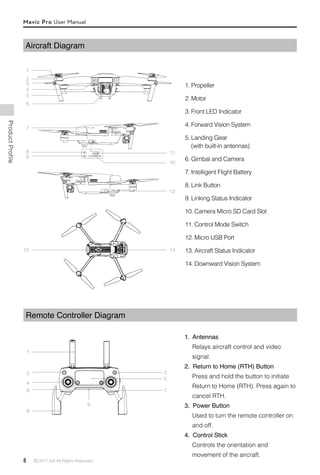
Before you take to the skies, you need to assemble your drone. Follow these steps to ensure everything is correctly in place:
| Component | Description | Installation Steps |
|---|---|---|
| Propellers | These are crucial for flight and stability. | Align the propellers with the motors and press them down until they click into place. |
| Battery | Power source for the drone. | Insert the battery into the compartment until it locks securely. |
| Camera | Captures video and photos during flight. | Ensure the camera is properly mounted and adjusted for optimal angle. |
Connecting and Calibration
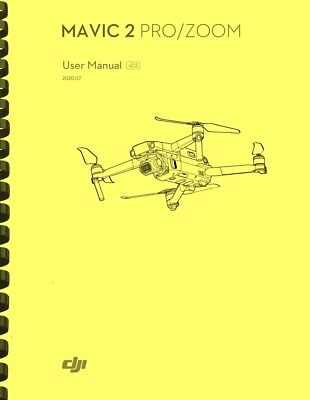
With your drone assembled, the next step is to connect it to your controller and calibrate it:
- Power on the drone and the controller. Make sure both devices are fully charged.
- Follow the on-screen instructions on your mobile device to pair the controller with the drone.
- Perform calibration procedures for the compass and IMU (Inertial Measurement Unit) as guided by the app to ensure accurate flight.
Following these steps will help you get your drone ready for a successful flight, ensuring both safety and optimal performance.
Understanding the Control Interface
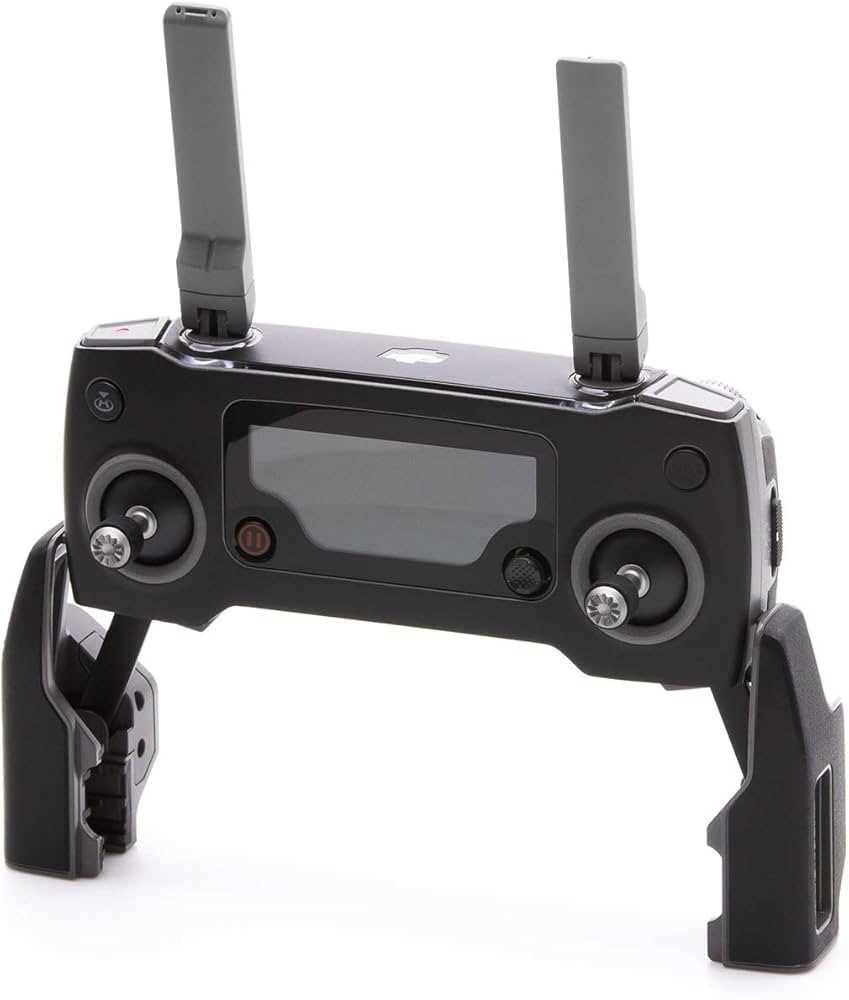
Mastering the interface for remote navigation is crucial for efficient and safe operation. This section explores the key components, functions, and techniques necessary to effectively manage and utilize the controls. Whether you are adjusting the camera settings or fine-tuning flight dynamics, understanding these elements is essential.
Main Control Elements
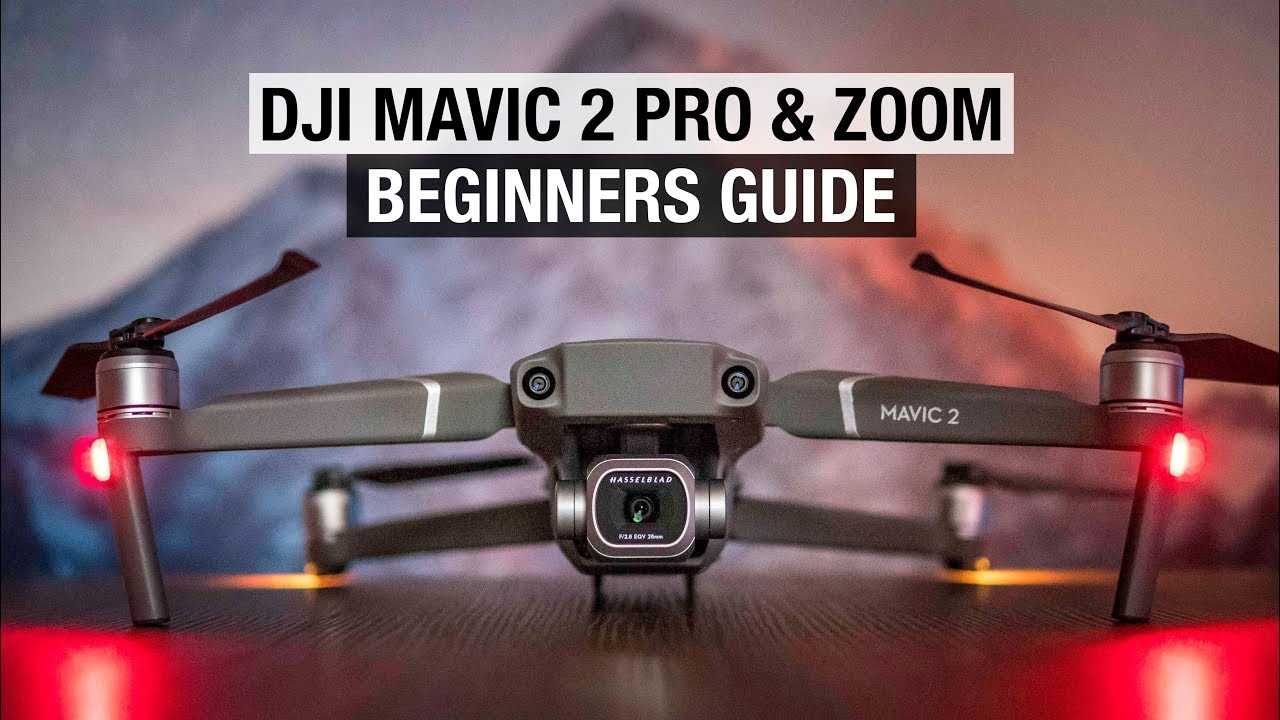
The central interface features a range of tools designed for specific tasks. Each button, dial, and screen area serves a particular purpose. Recognizing the role of each element will enhance your ability to navigate and adjust the system t
Flying Techniques and Safety Tips
Mastering aerial navigation requires both skill and awareness. Ensuring a smooth and secure flight experience involves understanding key practices that promote control and prevent accidents. By following essential guidelines, you can enhance your confidence and safety during each session.
Wind and Weather Considerations: Always check the weather forecast before heading out. Strong gusts and unexpected changes in wind direction can challenge stability and control. Fly during calm conditions to maintain better command over your device.
Altitude Management: Keeping a safe and consistent altitude is crucial for avoiding obstacles and staying within regulated airspace. Use gradual movements to adjust height, and maintain a line of sight to avoid unexpected hazards.
Takeoff and Landing: Choose flat and unobstructed surfaces for both takeoff and landing. Ensure that the area is free of debris and that there is ample space for smooth elevation or descent. Practice gentle takeoffs
Maintenance and Troubleshooting Guide
Regular upkeep and the ability to address common issues are essential for ensuring the longevity and optimal performance of your equipment. This section offers guidance on routine care procedures and steps to resolve frequent problems that might arise during operation.
Regular Upkeep
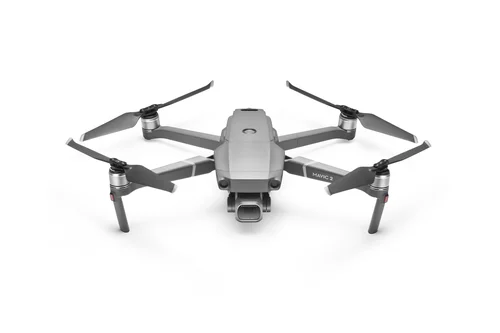
To maintain peak performance, it is crucial to follow a consistent maintenance routine. Clean all components after each use, paying special attention to areas prone to dirt and debris accumulation. Inspect the device periodically for any signs of wear or damage, particularly the moving parts and connections. Replace any worn-out components as necessary to avoid potential malfunctions.
Common Issues and Solutions
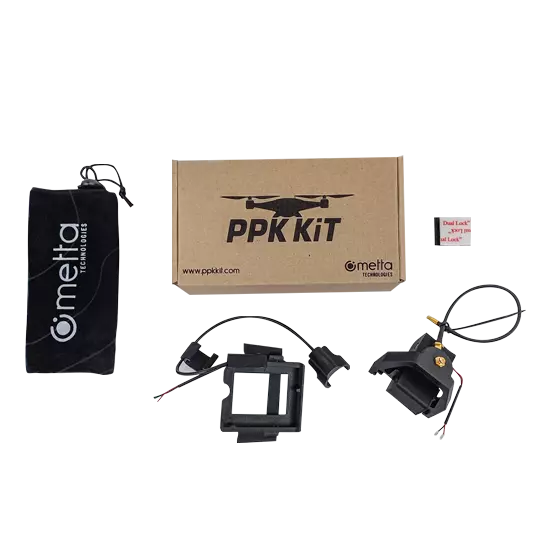
If you encounter any operational issues, refer to the following table for common problems and their corresponding solutions. Addressing these promptly will help to minimize downtime and prevent further complications.
| Issue | Possible Cause | Solution |
|---|
